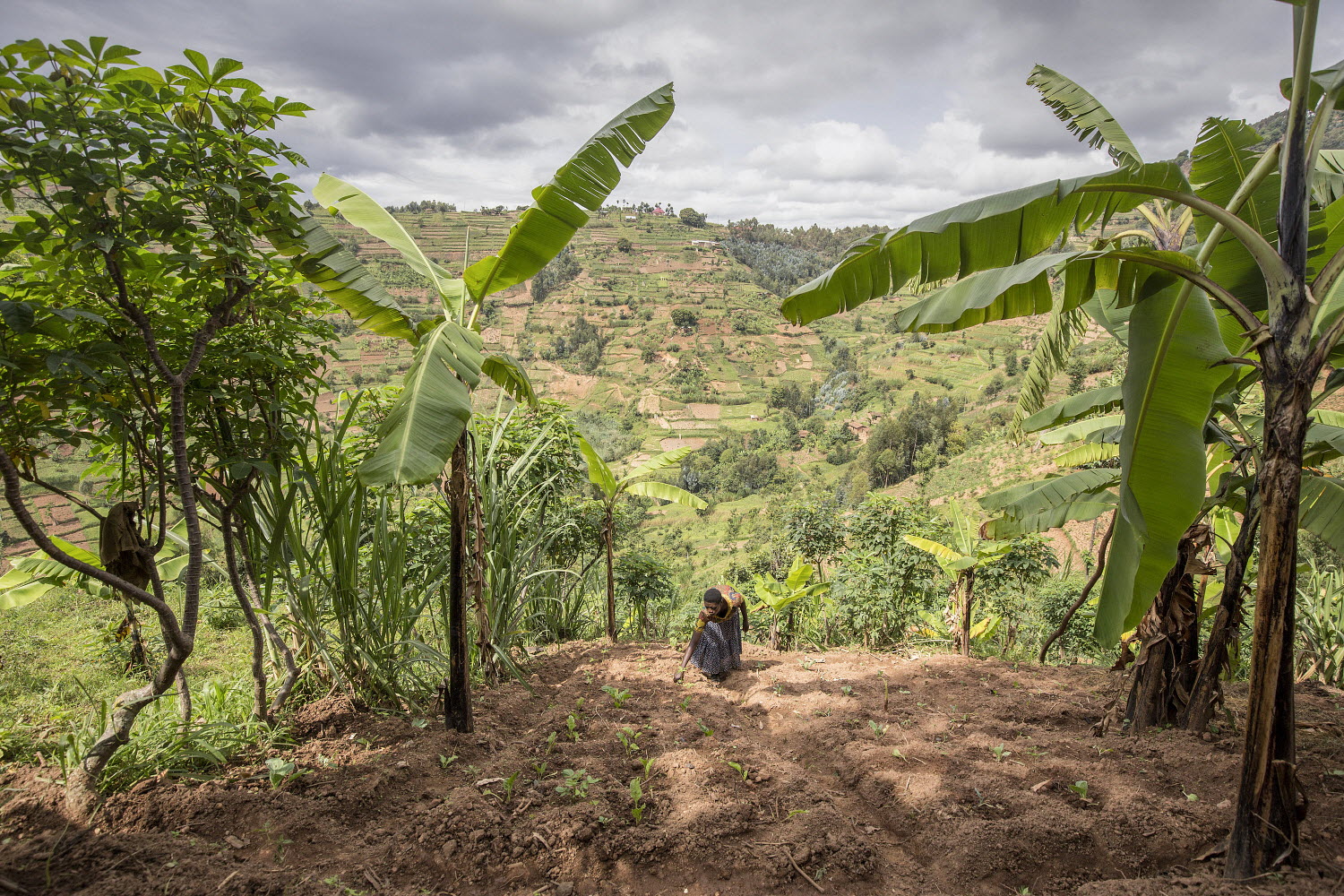Evaluation of FAO’s Country Programme in Rwanda
The main purpose of the Rwanda country programme evaluation (CPE) is to enhance the positioning of FAO’s programme in Rwanda, ensuring it aligns more effectively with the nation’s needs, and strengthens FAO’s impact on national priorities and the Global Goals of FAO Member Nations.
The outcomes of this evaluation will be instrumental in shaping the next Country Programming Framework (CPF) for Rwanda, whose development is scheduled to start in 2024
The evaluation covered the totality of FAO’s cooperation with the Government of Rwanda over the period of the current CPF 2019-2023, which also take into account activities backstopped by HQ, the Regional Office for Africa and the Sub regional Office for Eastern Africa.
It focused on FAO’s overall contribution to the four pillars outlined in the CPF:
- PA1: Innovative approaches to promote sustainable and integrated crop, livestock, and aquaculture production systems promoted.
- PA2: Food security, nutrition and climate, and other shocks to resilient agriculture improved through sustainable and diversified production systems.
- PA3: Inclusiveness of agricultural market systems as well as value addition and competitiveness of diversified agricultural commodities in domestic, regional, and international markets promoted.
- PA4: Enhanced enabling environment and Responsive institutions for effective and efficient delivery of Services.
The evaluation concluded that while FAO’s initiatives align with Rwanda’s agricultural development goals and exhibit adaptability, there is a need for more strategic focus and prioritization, considering limited resources. The design of the next CPF ought to address current gaps and promote a results-based approach, including a clear theory of change (TOC), risk analysis, and robust monitoring and evaluation (M&E) systems. Additionally, FAO should aspire toward a gender transformative approach and inclusivity, particularly for people with disabilities, and focus on building sustainable partnerships beyond the agricultural ministry.
Recommendations included focusing on targeted interventions with clear goals and resource mobilization and operationalizing the four betters approach for better coordination and efficiency. The evaluation strongly recommended that FAO identify which ministries align with its new four betters structure in order to ensure their participation in the development and implementation of the future CPF. It should strengthen stakeholder engagement, particularly with the private sector, and promote a gender transformative approach in the future programme.
Documents
- Evaluation brief
- Evaluation report
- Annex 1. Terms of reference
- Annex 2. Mid-term evaluation of the project “Capacity development for innovation in Rwanda: Strengthening innovation partnerships in six districts: Burera, Rutsiro, Gatsibo, Nyagatare, Bugesera and Ruhango”
- Infographic

Related links

